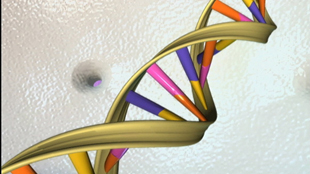 NATIONAL HUMAN GENOME RESEARCH INSTITUTE
NATIONAL HUMAN GENOME RESEARCH INSTITUTE
National Cancer Institute (NCI) scientists have released a database of cancer-specific genetic variations identified through sequencing the whole exome, the protein-coding part of the genome, of 60 cancer cell lines. The scientists published details of the cell lines online on Monday (July 15) in Cancer Research.
“Opening this extensive data set to researchers will expand our knowledge and understanding of tumorigenesis, as more and more cancer-related gene aberrations are discovered,” Yves Pommier, chief of the Laboratory of Molecular Pharmacology at NCI, said in a statement. “This comes at a great time, because genomic medicine is becoming a reality, and I am very hopeful this valuable information will change the way we use drugs for precision medicine.”
The 60 cell lines, referred to as the NCI-60, ...



















